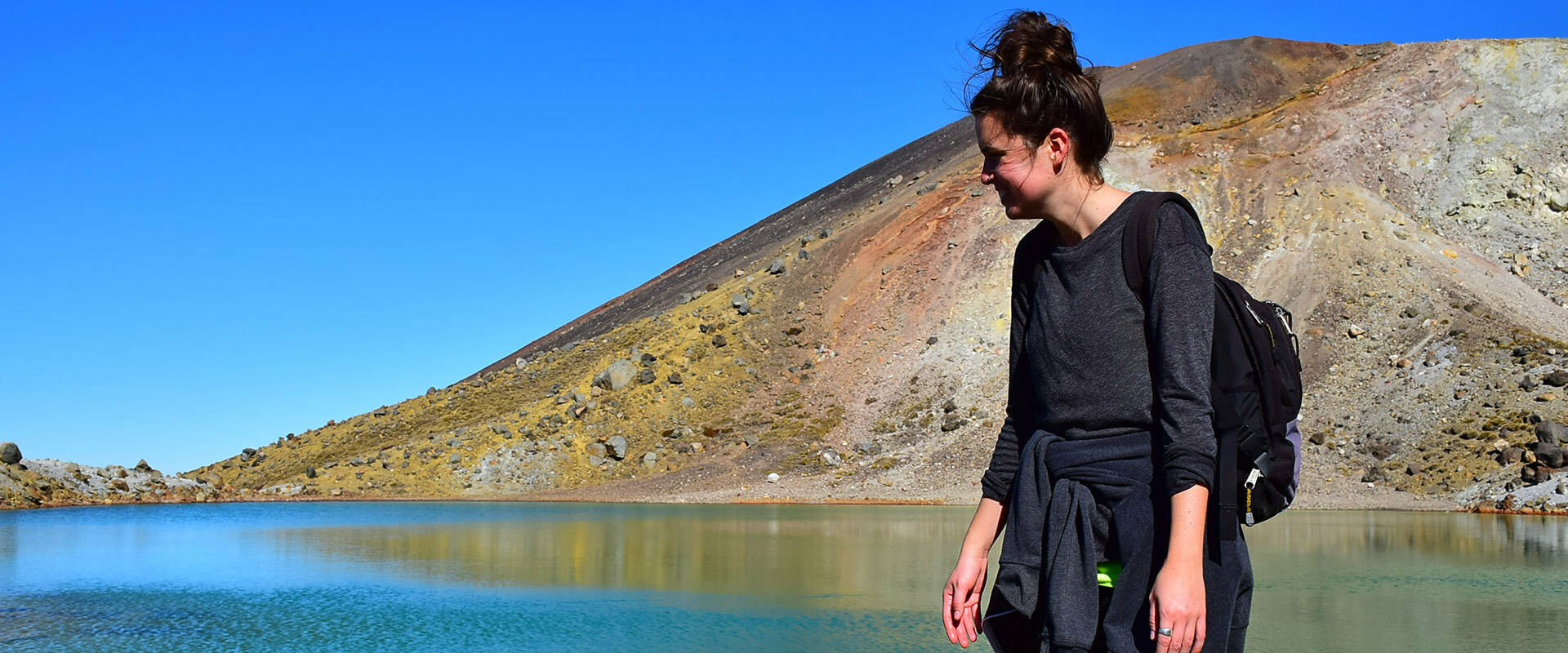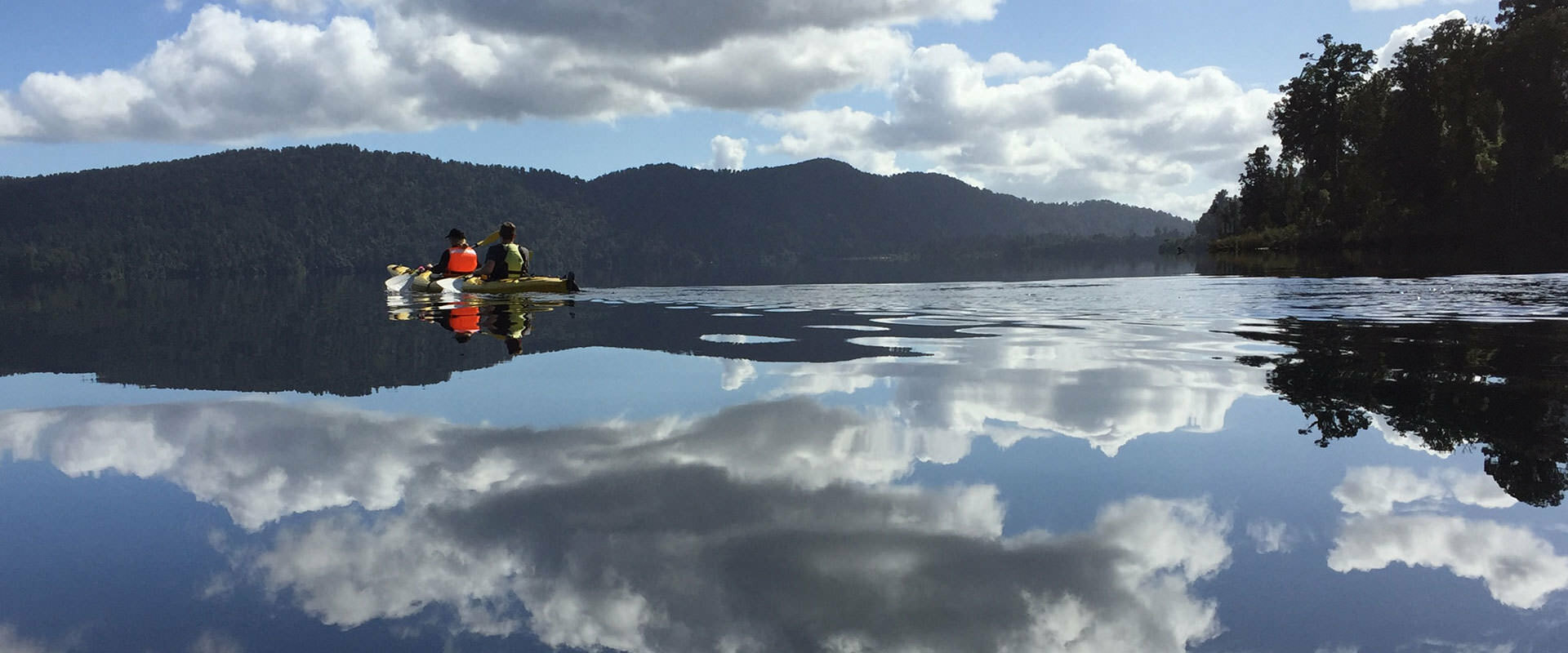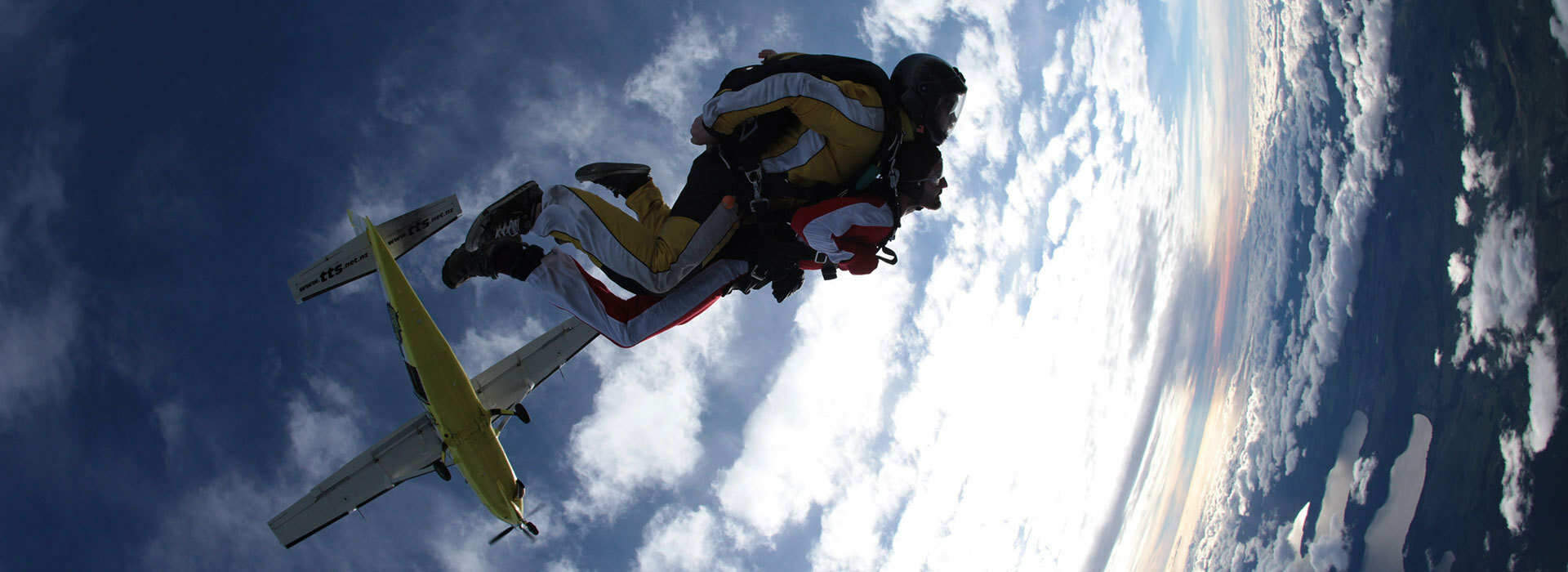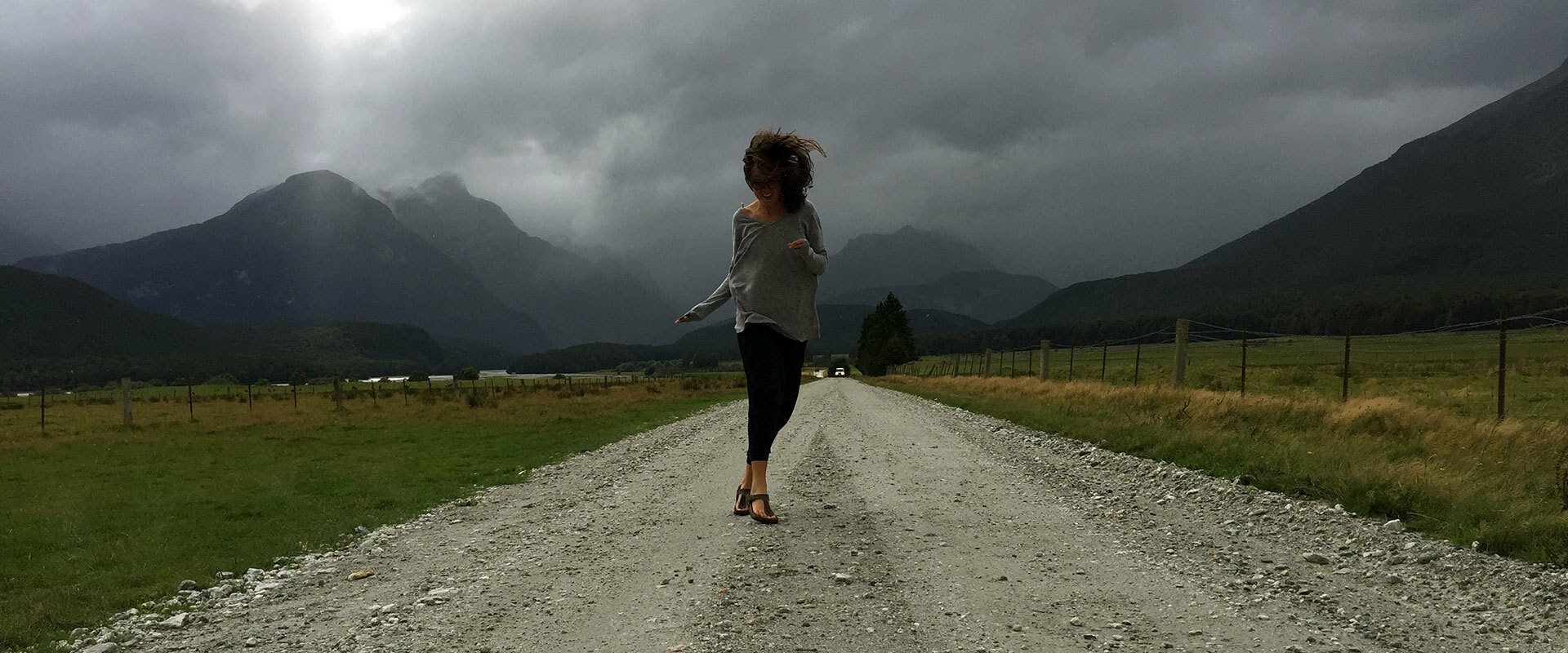Travel taught me how to be alone
I always thought being alone meant being a loser, and as a late-20s city dweller, I was fully immersed in the mentality that I had to be seen doing cool things with cool people at all times. I wasn’t one of those people that went to the movies solo. I mean, I had a hard enough time walking home from work without calling someone on the way, without joining the throngs of people furiously texting and making plans to showcase the fact that HEY, I know people, too.
But then, one cold, wet day in November, with my 27th birthday approaching obnoxiously quickly, I decided it was now or never. I was growing up and getting older and Instagram kept reminding me to “live my best life” while I still could. And I mean, I agreed with Insta. I had stuff I wanted to do! I was going to leave my city-dweller ways to see the world and live out my dreams of writing a novel. Not speaking another language and not really knowing all that much about the world, I figured the best place to make this happen was somewhere in New Zealand. So about three months later, I quit my job in video production in the PR industry, packed my life into a backpack and took off for an undetermined amount of time.
When I stepped off the plane in Auckland, I had three very distinct feelings: 1) It was warm, 2) I had no idea what I was supposed to do with myself now and 3) I was completely, inexplicably alone.
I was the most alone I had ever been. And thus, according to my own definition, I was a loser. How I didn’t think this through before is beyond me.

When I had thought about solo travel before, I was always imagining the big picture. I thought I’d meet people and see things with those people and have the best time ever—and I mean, that’s what everyone told me would happen. “It’s so easy,” people would tell me when I asked about their solo trip through Asia, Australia, their European summer. “You’ll meet so many people.”
But no one talks about the first 24 hours. The first 48. Those first moments when you arrive in a new country, after weeks or months or even years of planning, and have to consciously do something with yourself now.
The first 72 hours were rough. I spent my days walking around Auckland and my evenings sitting in the hostel common room, sipping beers and waiting for something to happen, for someone to talk to me, for a table to look inviting enough to join. I’d force myself to get up early because I wanted to make the most of my time, and would quickly realize I didn’t know what to fill it with other than endless hours of being alone. Of making breakfast alone and drinking coffee alone and hopelessly trying to plan what my next few months would look like. Alone.
“Is it amazing?” People would write from home. “Have you found yourself yet?”
“Working on it!” I’d respond. “It’s so beautiful here!”

But in reality, my life was this:
My first three days in New Zealand I would eat french fries at 4 p.m. I’m embarrassed to admit that, but it gave me something to plan around, somewhere to go. It gave me something to do before I knew what I was doing yet. Weirdly, I didn’t feel self-conscious sitting alone and eating. I mean, I was a traveller. Travellers are allowed to eat alone. The rules are different here. But even if you’re allowed to be alone, that doesn’t change the fact that you are.
And despite the fact I posted photos of beautiful scenery and claimed to be having some sort of personal journey, all I continued to feel was that I was the most alone I had ever been.
I joined a backpacker bus tour to try to meet people. We drove up north to the Bay of Islands, where it was lovely and warm and the clear blue water stretched on and on. I recognized a girl named Lauren whom I’d briefly met a few days earlier in a nice hostel on Waiheke Island. We spent the afternoon day-drinking our way through overpriced beers and talking about life. It was fine, but I didn’t feel overly connected to her and she was travelling with a friend (who happened to be napping his hangover away while we sat dockside), which meant she didn’t need me the way I needed her, and thus only reminded me even further just how alone I was. Everywhere I looked people seemed to have someone and if they didn’t, they didn’t seem as desperately eager to find someone as I was.
Everywhere I looked people seemed to have someone and if they didn’t, they didn’t seem as desperately eager to find someone as I was.
Over the next few months everything stopped feeling quite so new and scary, and just as I’d imagined in the big picture sense, I started to meet people. I knew what I was doing now. I had a bank account and a favourite coffee order. I felt settled. And in feeling settled, I no longer felt the NEED to find other people—which weirdly made it happen a lot more easily (and frequently). In hostels. In cafes. On campsites. I road-tripped with people I loved and people I didn’t. I hiked mountains with people I loved and people I didn’t. Sometimes I slept in horrible, dirty dorms where people hooked up in the bed beside me, and sometimes I slept in cozy hostels where I’d end up meeting someone in the kitchen and we’d talk about books and life and I’d feel normal again. I made friends that were real and ones that were convenient, and after three equally long and short months, tired of being on-the-go and concerned about my depleting bank account, I decided to stop moving.
I found a wonderful, temporary three-month home at a hostel in Taupo. I worked at a café during the day and, in exchange for free accommodation, cleaned the hostel kitchen at night. And it was while cleaning this kitchen and chatting with people as they cooked their dinner around my sponges that I learned why they had come here, and, in turn, why I had come here, too.

Some people were similar to me—landing in this place for months on end. Some were stopping by just for a night—eager for a washroom, a kitchen and a break from their campervan. Some were students, taking a break between studies. Some were fully grown adults with fully grown children who had headed off alone for a two-week vacay and a mid-life surf lesson. But all of us—all of these solo travellers—had messily made their way to this lakeside town of Taupo and our lives intersected for a brief moment in time. Sometimes we’d get into real, deep talks while I swept the floor—about who we wanted to be. What we wanted from life. Sometimes we’d simply talk about Candy Crush.
But regardless of where the conversation went and who was a part of it, every night in that cozy kitchen there was a new group of people being alone... together. And now that I felt grounded and comfortable enough in myself and what my experience was, I realized it had been this way the whole time. I had never been “the alone one.” Everyone was, and everyone was dealing with it in their own way. And that’s the beautiful thing about backpacker life—it’s just a giant network of people being alone together. We weave our way around the world, in and out of different hostels, crossing paths for a moment or a while, and then we move on, go elsewhere, go home, and a new round of backpackers moves in and they do the same, and on and on it goes, like it has for decades and will continue to for decades more.
Every single one of us has felt the same kind of pull and decided to chase it—and who cares what their reason was? If it was to “chase your dream” and write a novel, or simply because you found a flight deal you couldn’t pass up? Who cares what any of us were looking for? All that mattered is we knew ourselves well enough to follow our own reasons, and for the most part, we found out that we could.

On my last day in New Zealand I sat in the airport alone waiting for my flight. I cried, seriously and heavily, knowing this was over. Knowing I was going back to real life. I sat there alone feeling the most full, the most loved, the most confident I had ever felt in my entire life. I mean, I did it. I came from a life of blazers and pretentious coffee orders, from a life where I was trying to be seen doing cool things with cool people at all times. And I found a place where I felt fully free to be myself among other people who were simply being themselves, too. We were all stripped so raw of our daily comforts and routines, and we weren’t trying to impress anyone or be anything other than comfortable and content and happy. And when all you have is conversation and time and a backpack full of clothes, it seems so much simpler to find that.
And then I went home.
When all you have is conversation and time and a backpack full of clothes, it seems so much simpler to be comfortable and content and happy.
A few weeks after I landed back in Toronto, it was a lovely, sunny Saturday morning and all I wanted was to eat a giant brunch that was just as beautiful. And so, falling back into my city-dweller mindset, I texted a handful of people to see who could join me.
“Last minute, I know, but can you brunch??”
And as I waited for a response I did my dishes. Plucked my eyebrows. But no vibration from someone eager to join me in my quest for eggs benny. I stared at my phone, willing it to ring. Willing someone, anyone, to be free at this exact moment in time. But as the phone stayed silent, I accepted the situation at hand.
I had to go to brunch alone. In Toronto. In the place where I was supposed to be seen doing cool things with cool people at all times. And sure, I could’ve simply not gone, choosing to eat a sad piece of toast in the comfort of my own home. But I went for two reasons. One, I had just had this life-changing experience of taking on the world solo and I could NOT come home and let that slip away, and two, when you get the idea of eggs benny in your head it’s pretty hard to get it out.

For some reason we’ve created this divide between “real life” and “travel life”—but maybe that line is blurrier than we thought. And maybe holding onto your independence and taking on the world solo (be it for ten minutes sitting at a restaurant or in general as you wade through your latest breakup), maybe this is what the whole “finding yourself” phenomenon is really about. Maybe it’s as simple as realizing that being alone does NOT equal being a loser. Maybe being alone simply means you like yourself enough to spend time with yourself. And that’s huge.
I slowly pulled on my black romper, tied my hair in a topknot and stared at my phone one final time. It stared back. Blankly. Sadly. But as my stomach desperately cried out for hollandaise I knew it was now or never, so I threw a book in my purse and went outside.
I rode my bike to a restaurant on Queen Street with my heart pounding in my ears, barely able to lock it up to the post on the sidewalk because my hands were shaking. I wish I was exaggerating but I’m not. I was actually that nervous.
I walked inside.
“How many?” the guy asked, immediately pulling out two menus.
“Just one,” I tried to respond in a loud, confident voice that unfortunately turned into a sputtery cough because I WAS SO EMBARRASSED TO ADMIT OUT LOUD THAT I WAS EATING BY MYSELF. I mean, I wasn’t a traveller anymore. I was a real-life person in the city. The rules were different here.
He smiled. Sat me at a table on their garden patio. And then?
Literally nothing notable happened.
Nothing.
I just sat there like a normal human. I ordered a coffee. I ordered food. They brought me said food and I ate it with a knife and fork, sipping my coffee in between mouthfuls and eavesdropping on the conversations around me. It was quite satisfying.
When I finished they cleared my plates and brought my bill. I paid it. And then I left.

It was an extremely normal situation. So normal, in fact, that I realized maybe travel had changed me. No, I didn’t come home with a finished manuscript or even a clear idea of what I was doing with my life, of who I should be. I didn’t come home knowing what this whole life thing was all about. But I came home knowing how to be with myself. Not how to be someone or do something or think some way, just how to be.
So the next time someone asks? I feel fairly confident in saying that yes—I think I did find myself. Turns out I’d been chillin’ alone out there in the world this whole time.
Issue 5



